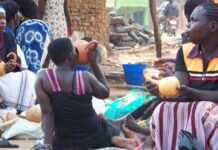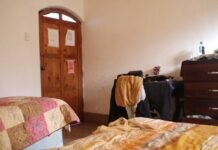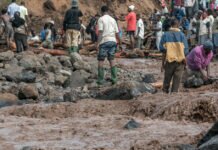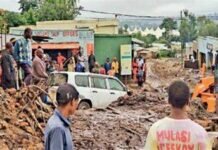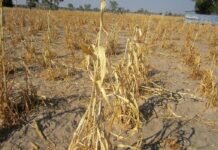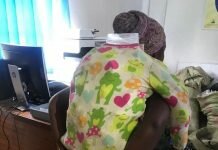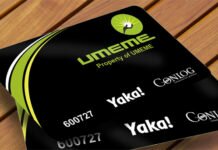The streets of Kenya’s capital Nairobi remained deserted and most businesses shut on Monday as anti-government protests entered the second week.
While the police managed to mute the protests in the capital, confining them to pockets of the city where the opposition has strongholds, most citizens and traders kept off the streets for fear of violence.
In the Kibera slum in Nairobi, one of the areas where Azimio la Umoja-One Kenya Coalition led by opposition leader Raila Odinga has a huge support base, tens of youths clashed with anti-riot police officers. The officers tear gassed the youths who pelted them with stones and lit bonfires in violent confrontations as they sought to block them from reaching the Nairobi central business district.
Similar scenarios were reported in Mathare and Kawangware slums, other strongholds of Odinga, which last week were a hotbed of violent anti-government protests.
Odinga and fellow Azimio leader Kalonzo Musyoka showed up in Kawangware to lead the protests. As their convoy snaked through the settlement, police lobbed teargas at them and the protestors, sparking a clash as the leaders were driven away.
“Kenyans are saying no to oppression,” Odinga tweeted later as he urged his supporters to soldier on with the fight. More protests were also witnessed in the lakeside city of Kisumu as well as Migori on the border of Kenya and Tanzania.
In the two areas, the political bastions of Odinga, youths engaged the police in running battles and pelted them with stones as business in the towns was disrupted for the second straight week.
In Nairobi’s city center, though deserted, the streets were largely peaceful as police kept vigil to ensure no opposition supporters made way into the central business district. It all started early Monday morning when police erected roadblocks on all roads leading into the city center to bar protestors.
On Mombasa Road which links the Kenyan capital Nairobi and the coastal city of Mombasa, dozens of police officers manned a roadblock Monday morning. The officers stopped all passenger vehicles ferrying commuters into the city center and inspected them to flash out protestors.
Unlike Odinga, other leaders who supported the protests remained quiet in their hideouts for fear of arrest.
On Sunday, Inspector-General of Police Japhet Koome outlawed the demonstrations and vowed to arrest any leader, including Odinga, who will be on the streets. “Whichever level you are in society, whichever status you are, I have enough land cruisers to put you behind bars. Whoever I will arrest tomorrow, you will go to jail and stay there forever,” Koome said.
The protests, however, took a nasty turn on Monday after businesses associated with former President Uhuru Kenyatta and Odinga were attacked by goons and vandalized. The two have been accused by ruling party stalwarts of sponsoring the anti-protests.
Dozens of unknown people raided a Kenyatta family-owned farm dubbed Northlands City in Ruiru on the outskirts of Nairobi. The group of youths armed with power saws and machetes felled a number of trees and stole an unknown number of sheep. The raid was said to have been organized by pro-government operatives, some of who tweeted Monday morning about the farm.
Similarly, Odinga’s East Africa Spectre International Ltd, which deals in gas cylinders, was attacked and vandalized by goons. The police did not comment on the attacks but said later they were investigating the attack.
Odinga, who narrowly lost the 2022’s presidential election to William Ruto has declared the planned protests until the government addresses the high cost of living and electoral injustice. Odinga has said it was of utmost importance that the government reins in the high cost of living for the benefit of ordinary citizens.
Food prices have increased in Kenya due to a prolonged drought that has cut production and global disruption in the supply of commodities like maize and wheat. A decline of the Kenyan shilling against major international currencies has further exacerbated the situation for Kenya as imports become too costly.
Xinhua






